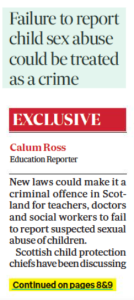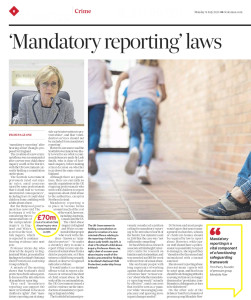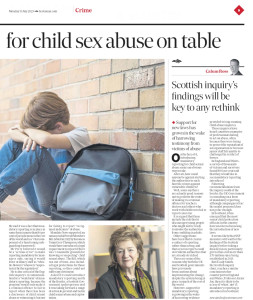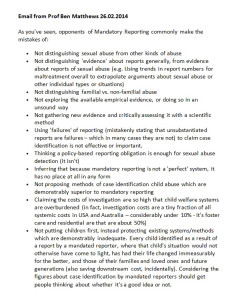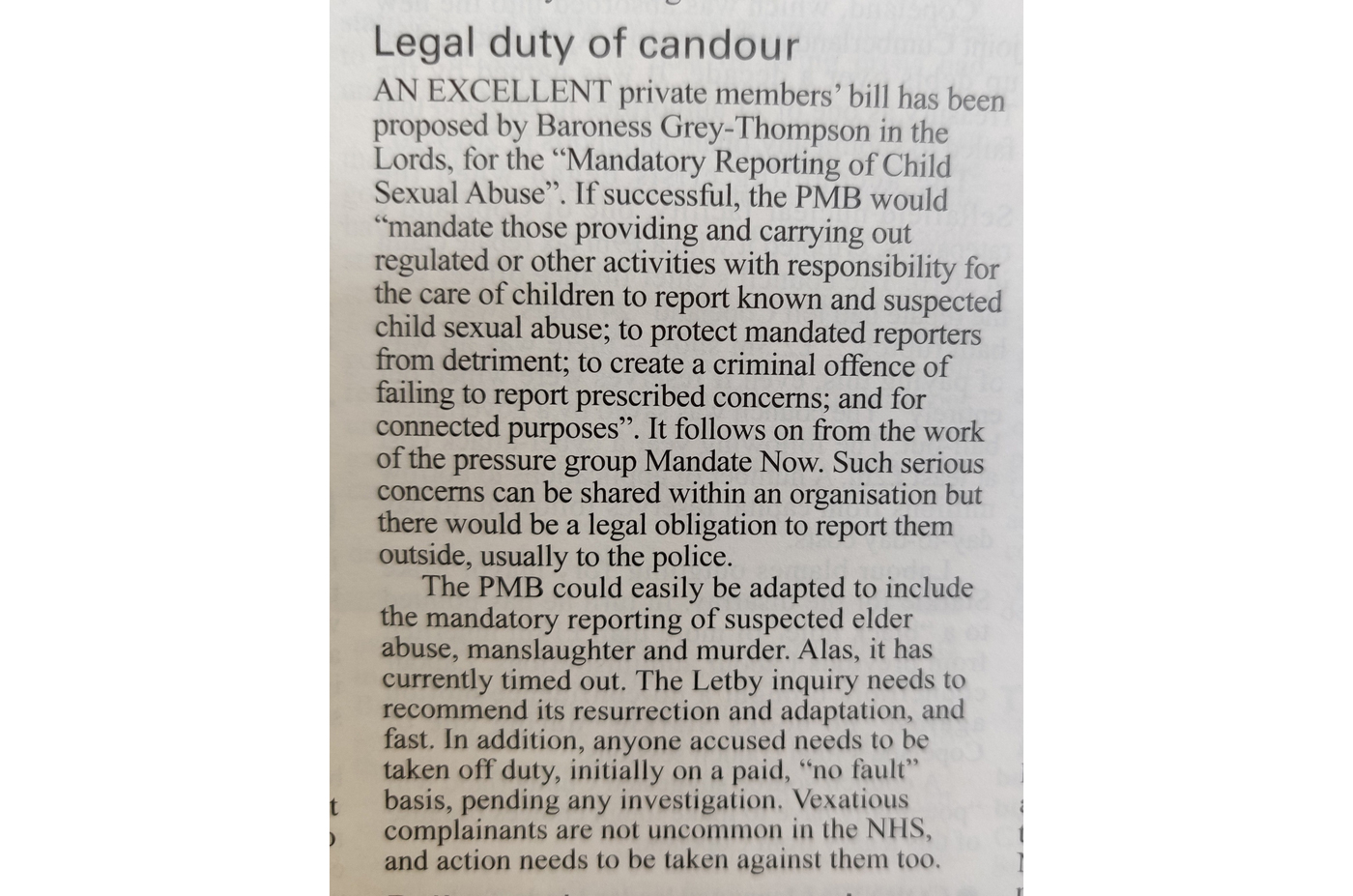The article informs us of a March meeting of the National Child Protection Leadership Group in Scotland attended by Alexis Jay.
We quickly alighted on a flurry of old canards that embedded into social worker responses to questions about the introduction of mandatory reporting of child sexual abuse. The article lists our responses to these in the order they appear in the article. Our comments are in italics.
A skein of canards against proposed mandatory reporting of known and suspected CSA
- “Serious unintended consequences” if mandatory reporting is introduced.
Users of this cliche usually speaks with gravitas, attempt to look knowing and often raise an eyebrow whilst speaking. It’s a favourite for those who do not know what to say. The statement is left hanging, unexplained, principally because it can’t be. Since 1931 ‘unintended consequences’ has been used 7,358 times in Parliament. - Dr Sarah Nelson, a research associate at Edinburgh University’s centre for research on families and relationships said “many people with long experience of working against child abuse and sexual violence have serious worries about whether mandatory reporting would actually be effective”, amid concern that it will be seen as a panacea while “encouraging complacency and ignoring more urgent changes needed.”
It’s argument of authority absent of evidence and plain wrong. We previously wrote about her position in this article: Scotland : Child abuse victims are still going undetected | Yet Scottish academics still mistakenly reject mandatory reporting - Dr Nelson said “most people would agree that senior management in churches, schools, children’s homes should be required by law to report abuse. However, while junior members of staff should have a professional responsibility to report to managers she argues they should not be threatened and intimidated with criminal sanction.”
This ignores evidence from mandatory reporting jurisdictions which reveals staff working with children want and need the protection against detriment afforded them by well-designed mandatory reporting. Dr Nelson demonstrates a lack of understanding about the strategic safeguarding importance of these very complex institutional settings perhaps because her work centres on families. Professor Mathews, who presented to IICSA MR seminar #2 in April 2019 commented on Baroness Tanni Grey-Thompson’s Private Members Bill for the introduction of MR of known and suspected abuse, and made observations about IICSA’s recommendation. Our position on the recommendation is here.
As far as junior members of staff are concerned – it is essential they are mandated reporters. Once again Dr Nelson shows little understanding of their position or of mandatory reporting which she mistakenly presents as a threat to good personnel. It’s the opposite. Please look at clauses 2. (2), (3), (4) on detriment in the Private Members Bill. Junior staff reporting to mandated leadership in institutions as Nelson proposes is a non-starter. Mandated reporters must include all personnel in a position of trust and it is they who report directly to the local authority / children’s services. Professor Mathews was asked about this at IICSA – here was the exchange. This practice is the default in every MR jurisdiction and is essential on legal grounds. - Dr Nelson also said “reporting abuse does not mean reports will be acted upon, and that focus should be on changing attitudes so young victims are no longer dismissed as prostitutes, troublemakers, delinquents or liars to be disbelieved”.
“Changing attitudes,” others call it culture change. Dr Nelson is willing the end but once again without proposing any means. Well-designed mandatory reporting of known and suspected child sexual abuse assists significantly with culture change. If Dr Nelson is complaining about police, then the police service, as they are in many if not most jurisdictions, can be mandated to report. Law is a significant catalyst for culture change as this academic makes clear.
Link to National Child Protection Leadership Group minutes: March 2023
Minutes for the meeting are also here should the link be removed by Scot Gov in future.
Dr Nelson’s responses to questions about MR contain the usual groupthink assertions of those who are ideologically against well-designed mandatory reporting of known and suspected child sexual abuse. Their position is achieved by ignoring the significant body of evidence and data that reveals the improved outcomes for children in jurisdictions that have well-designed CSA law. Here is a taster.
Here are a few of the arguments used by MR naysayers. You’ll see a number of them in article?

